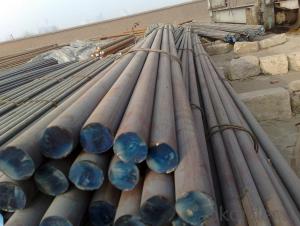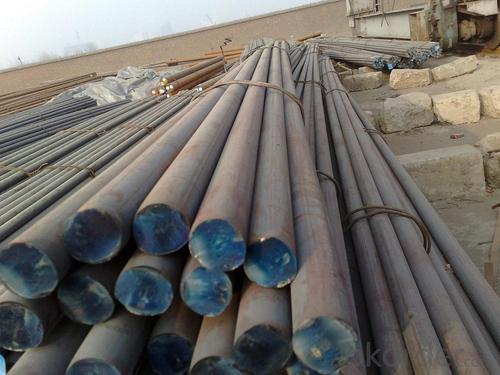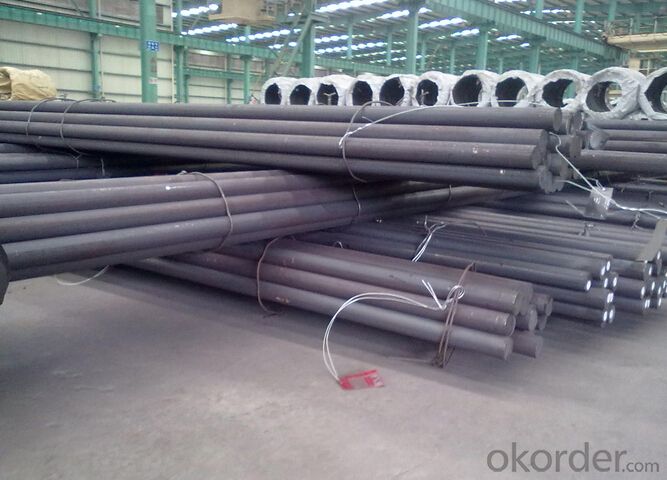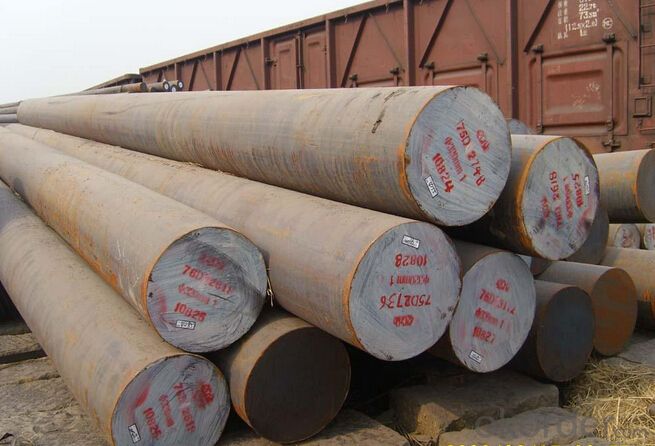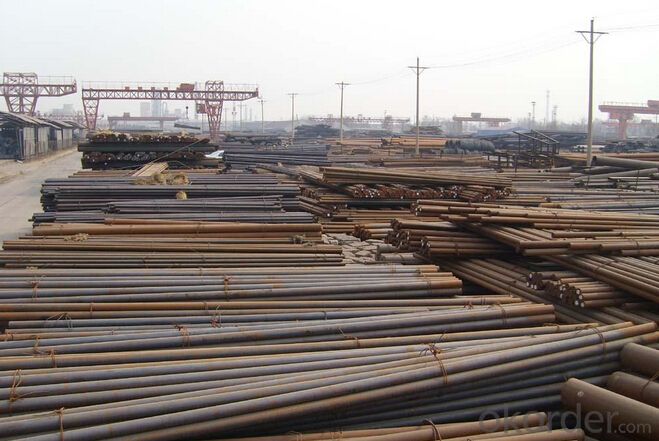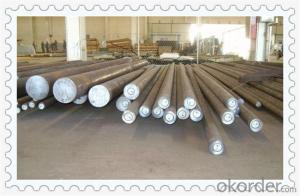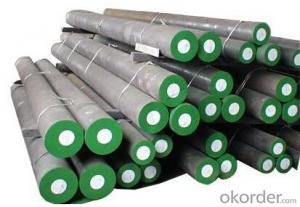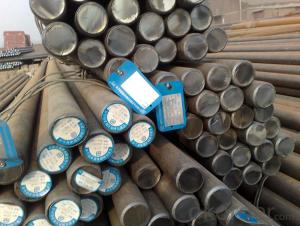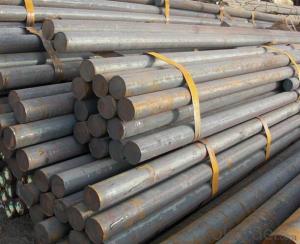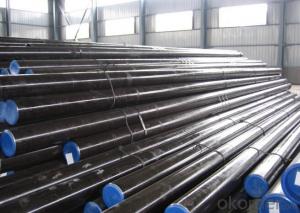Special Steel 5135 Alloy Steel Round Bars
- Loading Port:
- China main port
- Payment Terms:
- TT OR LC
- Min Order Qty:
- 30 m.t.
- Supply Capability:
- 10000 m.t./month
OKorder Service Pledge
OKorder Financial Service
You Might Also Like
Specification
Product information:
Standard | ASTM AISI | ||||||||||
Grade | 5135 | ||||||||||
MOQ | 1 Metric Ton | ||||||||||
Diameter | 8mm~1500mm | ||||||||||
Length | 6m,12m or as required. | ||||||||||
Diameter Tolerance | Within the allowable range or as required . | ||||||||||
Condition of delivery | Hot rolled,Cold Rolled or as required. | ||||||||||
Chemical Composition(%) | |||||||||||
C | Si | Mn | P | S | Cr | ||||||
0.30-0.37 | ≤0.40 | 0.60-0.90
| ≤0.035 | ≤0.035 | 0.90-1.20 | ||||||
Ni | Cu | ||||||||||
≤0.30 | ≤0.030 | ||||||||||
Mechanical Properties(In Quenching and Tempering) | |||||||||||
Tensile strength | Yield strength | Elongation | Reduction in Area | Impact | Hardness | ||||||
(σb/MPa) | (σs/MPa) | (δ5/%) | (ψ/%) | (J) | (HB) | ||||||
≥930 | ≥735 | ≥9 | ≥45 | ≥47
| ≤207 | ||||||
Product Show:
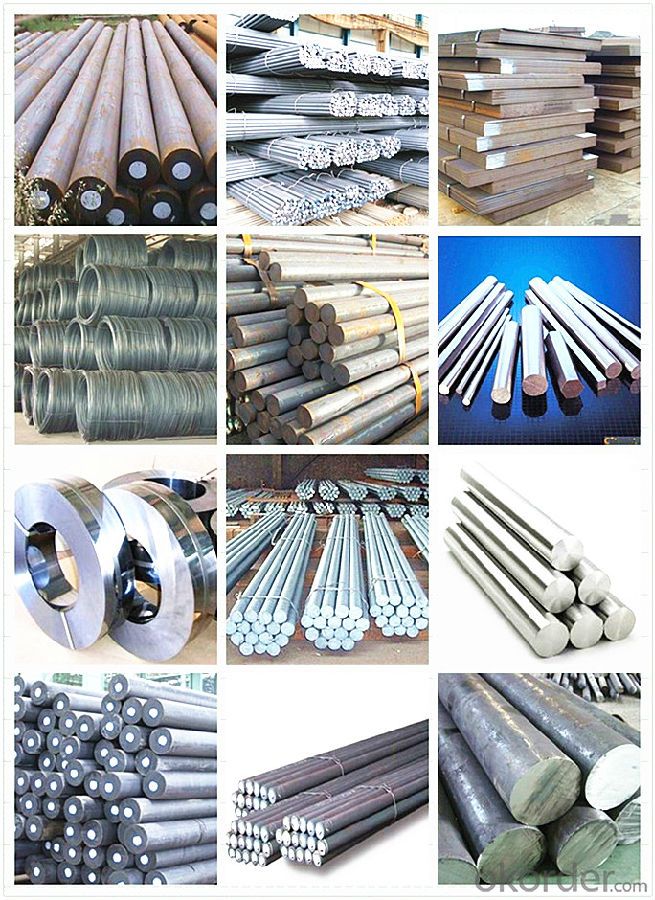
Workshop Show:
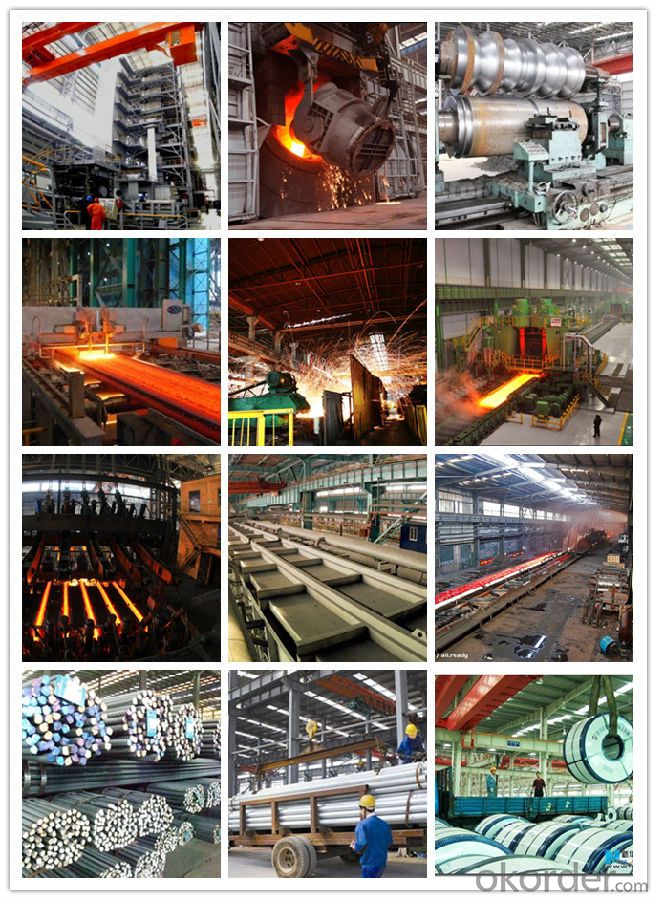
Shipping
1. FedEx/DHL/UPS/TNT for samples, Door-to-Door;
2. By Air or by Sea for batch goods, for FCL; Airport/ Port receiving;
3. Customers specifying freight forwarders or negotiable shipping methods!
Delivery Time: 3-7 days for samples; 5-25 days for batch goods.
Payment Terms
1.Payment: T/T, L/C, Western Union, MoneyGram,PayPal; 30% deposits; 70% balance before delivery.
2.MOQ: 1pcs
3.Warranty : 3 years
4.Package Informations: 1) EXPORT, In 20 feet (GW 25 ton) or 40 feet Container (GW 25 ton)
2)as customer's requirement
Why choose us?
(1) The leading exporter in China special steel industry.
(2) Large stocks for various sizes, fast delivery date.
(3) Good business relationship with China famous factories.
(4) More than 7 years steel exporting experience.
(5) Good after-sales service guarantee.
- Q: How is special steel used in the aerospace industry?
- Special steel is used in the aerospace industry for various applications due to its exceptional properties. It is used to manufacture critical components such as aircraft engines, landing gear, and structural parts. The high strength-to-weight ratio, corrosion resistance, and heat resistance of special steel make it a preferred choice for withstanding extreme conditions and ensuring the safety and reliability of aerospace equipment.
- Q: Can special steel be used in the production of knives and blades?
- Yes, special steel can be used in the production of knives and blades. Special steel, such as stainless steel or high carbon steel, offers excellent hardness, corrosion resistance, and edge retention properties, making it suitable for manufacturing high-quality and durable knives and blades.
- Q: How does special steel contribute to the automotive exhaust system industry?
- The automotive exhaust system industry greatly benefits from the use of special steel, which makes significant contributions. Firstly, special steel, such as stainless steel, offers excellent resistance to corrosion, a common problem faced by exhaust systems due to exposure to high temperatures and corrosive gases. This corrosion resistance ensures the longevity and durability of the exhaust system, reducing the need for frequent replacements and repairs. Additionally, special steel possesses outstanding heat resistance properties. As the exhaust system operates under extreme temperatures, special steel can withstand these conditions without deforming or suffering structural damage. This ability to handle high temperatures ensures the efficient functioning and long-term performance of the exhaust system. Moreover, special steel provides exceptional strength and durability. The exhaust system is constantly subjected to vibrations, impacts, and stress due to road conditions and engine movements. The high strength and toughness of special steel enable the exhaust system to withstand these forces, preventing premature failures and ensuring the safety and reliability of the vehicle. Furthermore, special steel allows for the design and production of intricate and lightweight components for the exhaust system. With advancements in steel technology, manufacturers can create complex shapes and thin-walled structures, reducing the overall weight of the exhaust system. This weight reduction contributes to improved fuel efficiency and vehicle performance by reducing the burden on the engine. Lastly, special steel offers the automotive industry the flexibility to meet increasingly strict emission regulations. By incorporating special steel in the exhaust system, manufacturers can effectively integrate catalytic converters and other emission control devices. These devices play a crucial role in reducing harmful emissions like carbon monoxide, nitrogen oxides, and particulate matter, thus ensuring compliance with environmental standards. In conclusion, special steel is an indispensable element in the automotive exhaust system industry. Its corrosion resistance, heat resistance, strength, and lightweight properties contribute to the longevity, reliability, and performance of the exhaust system. Additionally, special steel enables compliance with emission regulations, making vehicles more environmentally friendly. Ultimately, special steel plays a vital role in improving the efficiency and sustainability of the automotive exhaust system industry.
- Q: How does special steel contribute to the heavy equipment industry?
- Special steel contributes to the heavy equipment industry by offering enhanced strength, durability, and resistance to wear and tear. It enables the production of high-performance components and parts, such as gears, axles, and blades, that can withstand heavy loads, extreme temperatures, and harsh environments. The use of special steel in heavy equipment ensures improved safety, increased productivity, and longer service life, making it a critical material for the industry.
- Q: What are the different surface finishes available for special steel?
- There are several different surface finishes available for special steel, such as polished, brushed, satin, mirror, etched, blasted, and coated finishes. These finishes are used to enhance the appearance, durability, and corrosion resistance of the steel, depending on the specific application and desired outcome.
- Q: What are the different stamping grades of special steel?
- The different stamping grades of special steel include stainless steel, high-strength steel, tool steel, and alloy steel. Each grade has unique properties and characteristics that make them suitable for various stamping applications.
- Q: How does special steel contribute to sustainable construction?
- Special steel contributes to sustainable construction in several ways. Firstly, special steel is highly durable and has a longer lifespan compared to traditional building materials. This means that structures built with special steel require less maintenance and repairs over time, reducing the overall environmental impact. Secondly, special steel is often made from recycled materials, such as scrap metal, which helps to conserve natural resources and reduce waste. The recycling process also requires less energy compared to producing new steel, further reducing the carbon footprint. Additionally, special steel offers high strength-to-weight ratio, allowing for lighter and more efficient construction designs. This leads to reduced material consumption and transportation costs, as well as minimizing the load on the foundation and infrastructure. Lastly, special steel is highly resistant to corrosion and can withstand extreme weather conditions. This resilience ensures the longevity of the structures, reducing the need for replacements and minimizing construction waste. Overall, special steel's durability, recyclability, lightweight nature, and resistance to corrosion contribute significantly to sustainable construction practices by minimizing environmental impact, conserving resources, and promoting long-lasting structures.
- Q: How does precipitation hardening enhance the strength of special steel?
- Precipitation hardening, also known as age hardening, is a heat treatment process that enhances the strength of special steel alloys. This process involves a series of steps that result in the formation of fine particles or precipitates within the material's microstructure. The strength of special steel is primarily determined by the arrangement and interaction of its atoms. In its initial state, the alloy's atoms are distributed randomly, resulting in a relatively soft and ductile material. However, through precipitation hardening, the formation of precipitates during heat treatment plays a crucial role in strengthening the steel. The process begins by heating the steel to a high temperature, known as solution treatment or aging temperature. This temperature allows the atoms to dissolve and form a solid solution. The alloy is then rapidly cooled to retain the supersaturated state of the solution. Following the rapid cooling, the steel is subjected to a lower temperature, known as aging temperature. At this stage, the dissolved atoms begin to migrate and cluster together, forming small precipitates within the material's microstructure. These precipitates act as obstacles to the movement of dislocations, which are the primary carriers of plastic deformation in metals. The presence of these precipitates hinders the dislocation movement, making it more difficult for them to glide through the crystal lattice. As a result, the strength of the steel is significantly enhanced. The dislocation obstacles provided by the precipitates increase the resistance to deformation, resulting in improved hardness and strength. Furthermore, the size, distribution, and homogeneity of the precipitates play a crucial role in determining the strength enhancement. Smaller and more uniform precipitates provide a higher density of obstacles, leading to a greater strengthening effect. Additionally, the precipitation hardening process also influences other material properties, such as corrosion resistance and toughness. In conclusion, precipitation hardening enhances the strength of special steel by creating fine precipitates within the material's microstructure. These precipitates act as obstacles to dislocation movement, increasing the resistance to deformation and resulting in improved hardness and strength. This heat treatment process plays a crucial role in the development of high-performance special steel alloys used in various industries.
- Q: Can special steel be used in the food packaging industry?
- Yes, special steel can be used in the food packaging industry. Special steels, such as stainless steel, are often preferred due to their corrosion resistance, durability, and hygienic properties. They can be used to manufacture containers, equipment, and machinery for packaging, ensuring safe and efficient food handling and storage.
- Q: What are the main properties of special steel?
- Special steel, also known as alloy steel, possesses several key properties that set it apart from regular steel. Firstly, it exhibits exceptional strength and hardness, making it highly resistant to wear, impact, and deformation. Additionally, special steel offers excellent corrosion resistance, ensuring durability and longevity in various environments. It also demonstrates superior heat resistance, allowing it to withstand high temperatures without losing its structural integrity. Lastly, special steel offers excellent machinability, enabling it to be easily shaped, fabricated, and processed into a wide range of components and structures.
Send your message to us
Special Steel 5135 Alloy Steel Round Bars
- Loading Port:
- China main port
- Payment Terms:
- TT OR LC
- Min Order Qty:
- 30 m.t.
- Supply Capability:
- 10000 m.t./month
OKorder Service Pledge
OKorder Financial Service
Similar products
Hot products
Hot Searches
Related keywords
